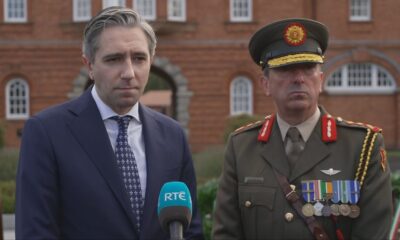Other News
Iran may withdraw from nuclear treaty following reimposition of UN sanctions, lawmaker says
Read more on post.

ADVERTISEMENT
Iranian lawmakers weighed on Sunday how to respond to the reimposed UN sanctions over its nuclear programme, which came into effect midnight on Sunday, with one parliamentarian suggesting Tehran could potentially withdraw from the Nuclear Non-Proliferation Treaty.
The sanctions again freeze Iranian assets abroad, halt arms deals with Tehran and penalise any development of Iran’s ballistic missile program, among other measures.
It came via a mechanism known as “snapback,” included in Iran’s 2015 nuclear deal with world powers, and comes at a time when Iran’s economy is already reeling.
Iran’s rial currency currently sits at a record low, increasing pressure on food prices and making daily life that much more challenging. The prices of essential items in Iranian households, such as meat, rice and other staples of the dinner table have all soared.
Meanwhile, people worry that a new round of fighting could erupt between Iran and Israel, as well as potentially the United States, as nuclear sites struck during the 12-day war in June now appear to be being rebuilt.
Speaking to the Young Journalists Club, which is affiliated with Iranian state television, lawmaker Ismail Kowsari said Parliament would discuss withdrawing from the nuclear treaty.
“Parliament will discuss this issue … and decide on it,” he said.
Asked by the club if Iran’s withdrawal from the treaty meant moving toward building the bomb, Kowsari said: “No, it does not mean that. This issue will be reviewed separately later, and we can have it on the agenda if necessary.”
Parliament Speaker Mohammad Bagher Qalibaf issued his own warning to those who would honour the UN sanctions as parliament convened on Sunday.
He also assured the three European countries responsible for re-springing the sanctions back on the country, France, Germany and the UK – the so-called E3 – that Iran will retaliate against this move.
“We announce that if any country wants to take action against Iran based on these illegal resolutions, it will face serious reciprocal action from Iran, and the three European countries that are the initiators of this illegal action will also face our reaction,” said Qalibaf.
France, Germany and the United Kingdom triggered snapback over Iran 30 days ago for its further restricting monitoring of its nuclear programme and the deadlock over its negotiations with Washington.
The three European nations said on Sunday that they “continuously made every effort to avoid triggering snapback.” But Iran “has not authorised IAEA inspectors to regain access to Iran’s nuclear sites, nor has it produced and transmitted to the IAEA a report accounting for its stockpile of high-enriched uranium.”
Iran further withdrew from the International Atomic Energy Agency monitoring after Israel’s war with the country in June, which saw US President Donald Trump order severe air strikes on the country’s three main nuclear sites, Natanz, Isfahan and Fordow.
Trump claimed that seven B-2 Stealth Bombers, each carrying a payload of two 30,000 pound (14,000 kg) ‘bunker-buster’ bombs “obliterated” Iran’s nuclear sites, setting back their ambitious atomic project by years.
Iran’s Supreme Leader Ayatollah Ali Khamenei has downplayed Trump’s remarks, calling them “exaggerated”.
The country still maintains a stockpile of uranium enriched up to 60% purity — a short, technical step away from weapons-grade levels of 90% — that is largely enough to make several atomic bombs, should Tehran choose to rush towards weaponisation.
Iran has long insisted and still maintains that its nuclear programme is peaceful, though the West and IAEA say Tehran had an organised weapons program up until 2003.
The E3 have also questioned the validity of Tehran’s claims, stressing that Iran enriches uranium at a level that no other peaceful programme does.
Additional sources • AP











